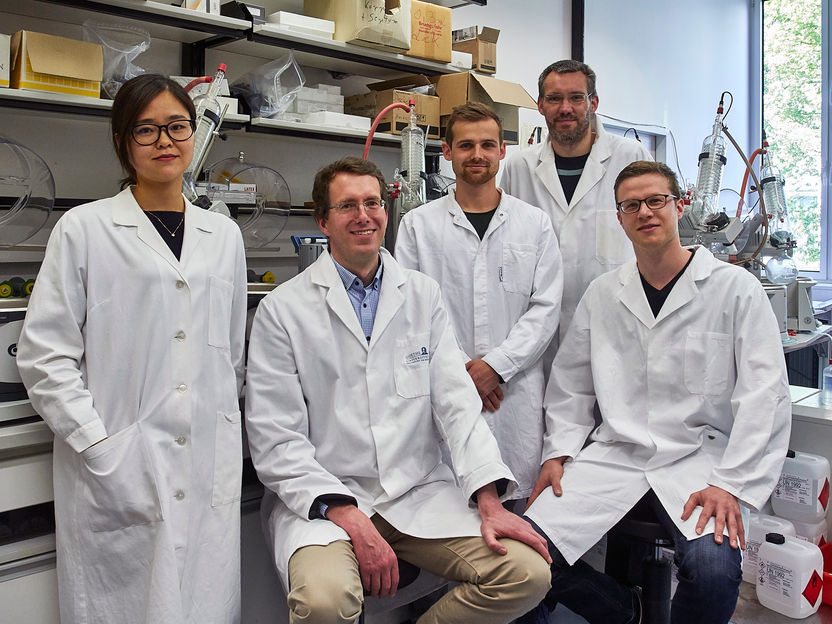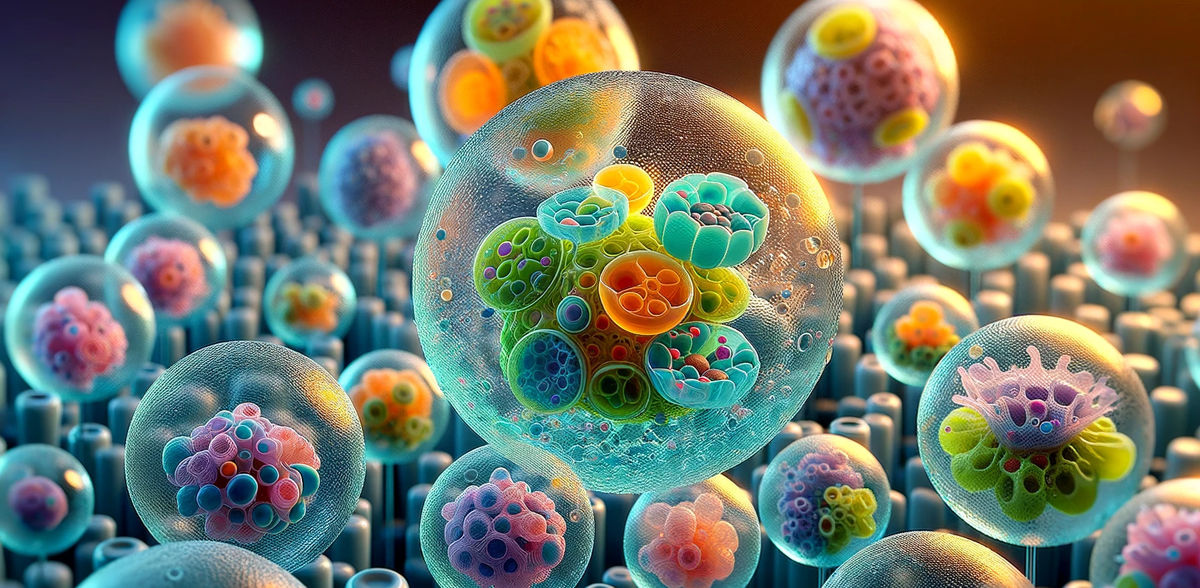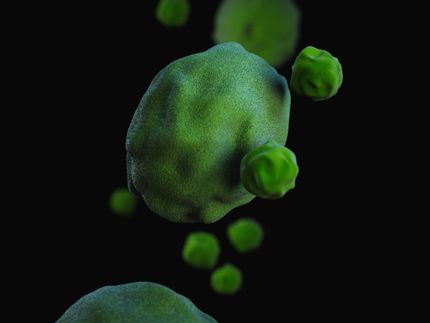Breakthrough in the synthesis of artificial cells
Researchers develop artificial cells from synthetic materials
A groundbreaking study published in “Nature Chemistry” reveals a remarkable leap in the synthesis of artificial cells using synthetic materials, achieved by an international team led by Dr. Andrea Belluati, Prof. Nico Bruns (both TU Darmstadt) and Dr. Sètuhn Jimaja (University of Fribourg). These cells, crafted through a process called biocatalytic polymerization-induced self-assembly (bioPISA), represent a significant advancement in the field of synthetic biology.
Artificial cells are microscopic structures that emulate the properties of living cells. They represent important microreactors to enhance chemical reactions and for molecular systems engineering, act as hosts for synthetic biology pathways, and are important tools to study the origin of life. The team developed an enzymatic synthesis of polymeric microcapsules and used them to encapsulate the soluble contents (i. e. the cytosol) of bacterial cells, thereby creating artificial cells with the ability to produce a range of proteins on their inside, including a fluorescent protein, the structural protein actin to craft a cytoskeleton-like structure, and the enzyme alkaline phosphatase to imitate the biomineralization process found in human bones.
The expression of proteins not only mimics one of the fundamental properties of living cells but also showcases the potential of these artificial cells in various applications, from drug delivery to tissue engineering.
“Our study bridges a crucial gap in synthetic biology, merging the world of synthetic materials with enzymatic processes to create complex, artificial cells, just like real cells” says Andrea Belluati. “This opens up new horizons in creating cell mimics that are not just structurally similar to biological cells but functionally competent as well.”
Nico Bruns adds: “Enzymatic radical polymerizations are the key to creating these artificial cells. Enzymes synthesize polymers that self-assemble during the polymerization into nano- and micro-sized polymer capsules. This is a very simple yet efficient way to prepare the artificial cells. In future work, we aim to use proteins expressed in the artificial cells to catalyse further polymerizations, thereby mimicking the growth and replication of natural cells.”
This research, a collaborative effort spanning the Department of Chemistry and Centre for Synthetic Biology of Technical University of Darmstadt, the University of Strathclyde, the Adolphe Merkle Institute of the University of Fribourg, and the University of Basel, marks a milestone in the synthesis of life-like artificial cells. It is a result of a project funded by the Swiss National Science Foundation through the National Centre of Competence in Research (NCCR) Bio-Inspired Materials, an EU-funded Marie Skłodowska-Curie Fellowship to Andrea Belluati, and a project from the UK Engineering and Physical Sciences Research Council.
Original publication
Original publication
Andrea Belluati, Sètuhn Jimaja, Robert J. Chadwick, Christopher Glynn, Mohamed Chami, Dominic Happel, Chao Guo, Harald Kolmar, Nico Bruns; "Artificial cell synthesis using biocatalytic polymerization-induced self-assembly"; Nature Chemistry, 2023-12-4
Topics
Organizations
Other news from the department science

Get the life science industry in your inbox
By submitting this form you agree that LUMITOS AG will send you the newsletter(s) selected above by email. Your data will not be passed on to third parties. Your data will be stored and processed in accordance with our data protection regulations. LUMITOS may contact you by email for the purpose of advertising or market and opinion surveys. You can revoke your consent at any time without giving reasons to LUMITOS AG, Ernst-Augustin-Str. 2, 12489 Berlin, Germany or by e-mail at revoke@lumitos.com with effect for the future. In addition, each email contains a link to unsubscribe from the corresponding newsletter.
Most read news
More news from our other portals
Last viewed contents
Category:Xanthines
Innogenetics announces the intention to restructure its subsidiary GENimmune
JOTEC joins the CryoLife family

Our sleep during lockdown: longer and more regular, but worse - The lockdown has managed to exhaust even good sleepers
Febit Files Patent Infringement Lawsuit Against Codon Devices





















































